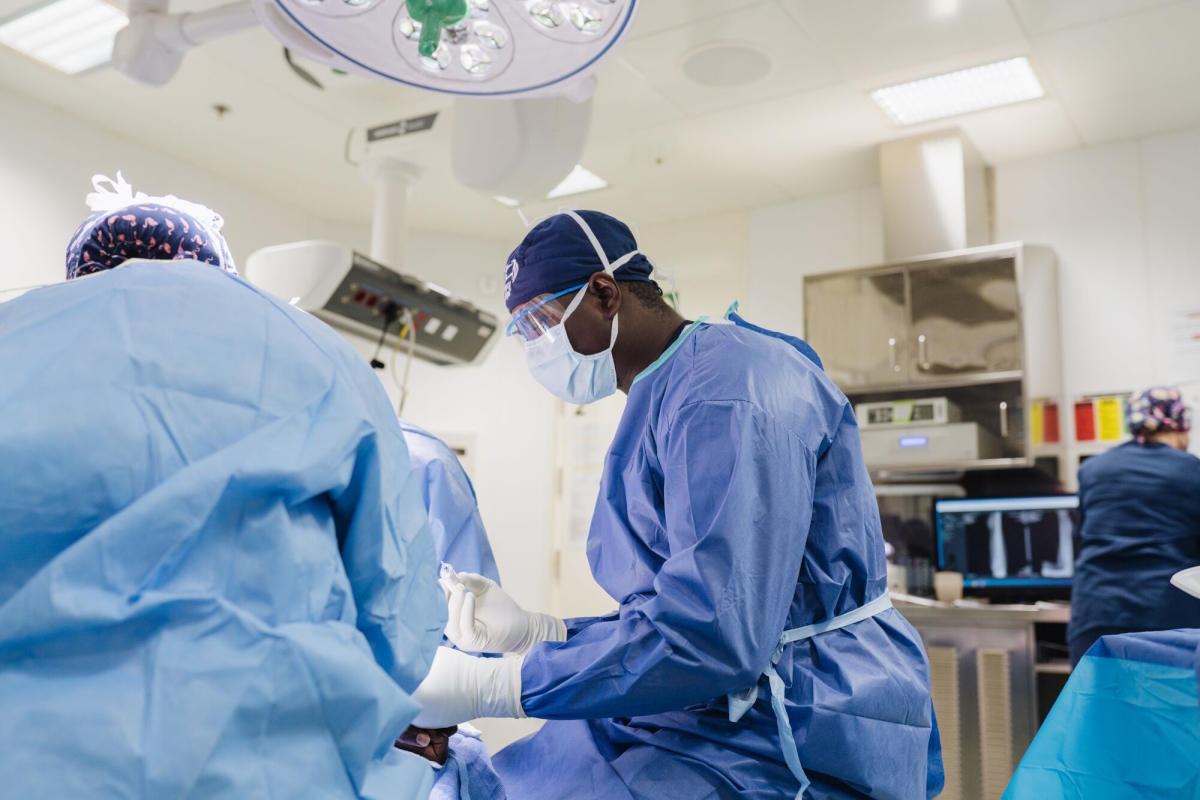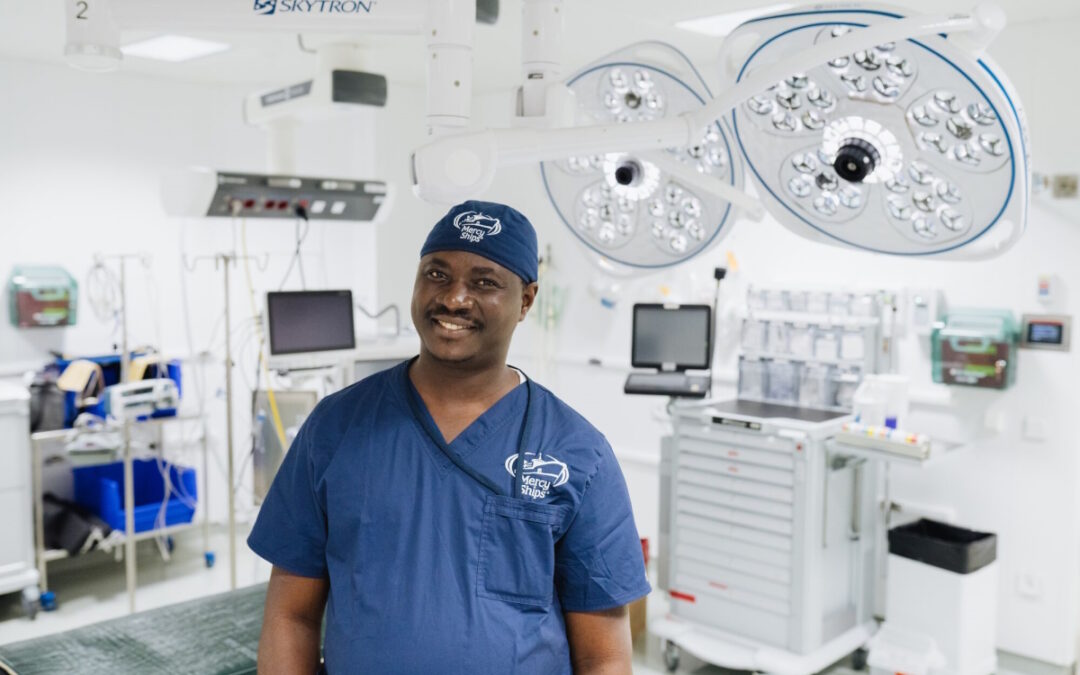As a young boy, Dr. Abraham Camara was puzzled when relatives, friends, and neighbours came to seek medical help from his father, a high school teacher.
“He was the only person who had gone to university, and he worked for the government,” explained Dr. Camara. Thus, “they thought he would know a lot about healthcare.”
His father embraced the responsibility. He recommended hospitals, raised funds for medical bills, made appointments with doctors, and took neighbours to treatments when he could.
Watching his father in action planted seeds of empathy in Dr. Camara’s heart. A dream to go into medicine was born.
Dr. Camara grew up to make that dream a reality. For the past 12 years, he has been training to become a specialised surgeon. This dream is rooted in the desire to become the ultimate champion of his patients: “I want to be in the best possible position to help.”
Becoming a Surgeon
Dr. Camara was born in Guinea and earned his medical degree at a university in the capital city of Conakry. His vision of becoming a doctor extended beyond personal career success. He yearned to transform lives and uplift his community.
“I wanted to change lives and help, just like my father,” he says.
Driven by this sense of purpose, he began working at a national hospital. There, he witnessed firsthand the numerous obstacles patients face when accessing surgical care.
“The medical infrastructure was fragile… Healthcare services were often out of reach for many,” he recalled. Despite this, he was determined to rewrite the healthcare narrative in his home country. But first, he needed more training.
Dr. Camara is a staunch advocate for specialised training in medicine. “The value of high education is enormous because there are some diseases that you come across and without specialisation, you won’t have an idea how to treat it.”
He noticed that a common obstacle to continued education was the high cost. Dr. Camara says this is a challenge faced by many African medical practitioners.
“Even if the doctor is qualified for work in healthcare, they still require more training and education. But most doctors in Africa don’t have that opportunity because it is expensive. So, if you don’t have the means, you only rely on the basic training you have acquired.”
A colleague introduced him to the Pan-African Academy of Christian Surgeons (PAACS), an organisation that trains African physicians to become surgeons, anaesthesiologists, and obstetrician/gynaecologists. Dr. Camara was sent to Gabon, one of PAACS’ many training sites across Africa, for his general surgery training.
PAACS offers surgical, anaesthesia, and OB-GYN training to African physicians to become surgeons and related specialists willing to remain on the continent and meet surgical needs. Additionally, the organisation offers discipleship and spiritual training to the trainees.
Mercy Ships partners with PAACS to provide an opportunity for PAACS residents to experience specialised residency rotations on board our hospital ships.

Education, Training, and Advocacy with Mercy Ships
In 2023, Dr. Camara boarded the Global Mercy™, Mercy Ships’ largest civilian hospital ship, as part of this new partnership with PAACS. He participated in the Mercy Ships Education, Training, and Advocacy (ETA) program, which focuses on long-term, sustainable educational activities integrated with the post-graduate training systems in the countries Mercy Ships serves.
In addition to offering residency rotation opportunities on board, the ship serves as a platform for host countries’ established training programs for surgical, anaesthesia, and nursing trainees.
Dr. Camara trained with reconstructive plastics surgeon Dr. Tertius Venter over the course of six weeks. During this time, he participated in pre-operative assessments, surgery, and follow-up care. His training on board counted towards his formal residency training with PAACS.
Dr. Venter, a long-time volunteer from South Africa, believes the program is highly valuable for residents across Africa.
“They are involved in the whole process from the beginning to the end. And then in addition to that, we also give them study materials and videos to get more acquainted with the different conditions we treat.”
He adds that the quality of care demonstrated on board often becomes aspirational for participants driven to recreate it in their facilities.
For Dr. Camara, scrubbing in alongside Dr. Venter was an opportunity to learn from an expert in the field.
“He is an experienced surgeon with many years [of practice], so he has developed skills over time, and I was able to see and learn them… It would have probably taken me very many years to figure some of that out.”
Looking Ahead to the Future
Erin Muyres, the senior director of ETA on board, says the goal is to increase the number of specialists within surgical healthcare systems gradually. In addition, she hopes that training on board inspires change in safe surgery policies and processes: “We’d like to see the integration of safe practices into host nation systems.”
Dr. Camara believes his time on board has expanded his understanding of quality patient care. “Sometimes we have cases that are complicated, that we don’t know what to do,” he says. “But with the help of training, we know how to take care of these patients and how to treat them.”
He departed the Global Mercy confident in the future impact he can make as a surgeon. Dr. Camara begins his career armed with skills honed through years of training, and the compassion he first learned from his father.
Learn more about Mercy Ships’ sustainable model of education, training, and advocacy – and how you can be part of it.

Recent Comments